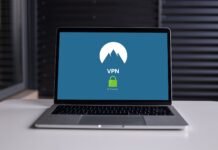Every employees may stay protected against the highly infectious Novel Coronavirus COVID-19 and also from other perils like road accidents, snatching, and so on by staying indoors. Still, you would get exposed to cybercriminals due to the use of the internet for online purchases, financial transactions through net banking, mobile wallets, and so on and also by working from home.
So, there is a potential danger that you may get hijacked in the virtual world through identity theft and by other means by cybercriminals, which may leave you penniless after sweeping your bank accounts clean.
The opportunity is sniffing at the time of lockdown, and desperate cybercriminals are using coronavirus-themed emails and files as a lure for weeks. They are now searching for ways to actively target the collaboration platforms, virtual private networks (VPNs), and systems currently used by companies for remote work to take advantage of weaker security.
The concept of work from home is not new, but the distance does not mean compromise, especially when it comes to security.
However, with unforeseen circumstances of COVID-19, most of the organizations are suddenly forced to practice this ‘Work from Home’ (WFH) culture. WFH has opened doors for the cybersecurity attackers and increased the possibility of a spike in hacks and breaches targeting businesses.
“With unforeseen circumstances of COVID-19, most of the organizations are suddenly forced to practice this WFH culture, which has opened doors for the bad actors and increased the possibility of a spike in hacks and breaches targeting businesses. Cybercriminals can use phishing and exploit users with their data and login credentials as well as distribute malware, trojans, backdoors for larger attacks. By taking advantage of a corona lockdown situation,” said Rajesh Kumar, Director, Cybersecurity, Netrika Consulting India Pvt, Ltd.
“To safeguard corporates a company should take many measures, such as Equipping Security Operations Center (SOC), Creating a centralized and integrated dashboard using advanced solution stacks, ensuring that your entire network secured with a VPN, MDM (Mobile Device Management) and Use of Digital Rights Management for Sensitive Documents,” said Rajesh Kumar.
Also, ensuring your team remains as prepared as possible requires setting aside time to train, even remotely. This is an excellent opportunity to utilize this time to train on safe cyber behavior and hone their skills in cyber ranges. Training against real-world malware in a remote environment with remotely accessible tools is key to ensuring success while working remotely,” said Rakesh Kharwal, Managing Director – India/South Asia & ASEAN, Cyberbit.





![[HINDI] What is DoS attack and DDoS attack?](https://bittentechsolutions.in/wp-content/uploads/2020/04/ddos-218x150.jpg)
![[HINDI] What is juice jacking? Think twice before using public USB ports](https://bittentechsolutions.in/wp-content/uploads/2020/04/juice-jacking-risk-1200x675-1-218x150.jpg)










